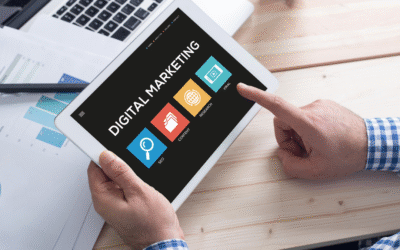Digital marketing encompasses a variety of strategies, each uniquely effective for different goals and industries. As I explore the various approaches, I will help you determine which methods align best with your business objectives and audience. From search engine optimization and content marketing to social media and email campaigns, understanding the strengths of each can empower you to make informed decisions for your marketing efforts. Let’s probe the different forms of digital marketing and discover the best fit for your needs.
Understanding Digital Marketing
A comprehensive grasp of digital marketing is important in our tech-driven world. With the rise of the internet and digital technologies, traditional marketing methods have transformed significantly. You, as a business owner or marketer, must adapt your strategies to engage effectively with your audience online. This chapter aims to unpack digital marketing, its components, and its relevance in contemporary business practices.
Definition of Digital Marketing
Among the myriad of business strategies, digital marketing distinctly refers to the promotion of products or services through various online platforms. It encompasses channels like social media, search engines, email, and websites. This approach enables you to reach your target audience more effectively and engage with them in real-time.
Importance in Today’s Business Landscape
An understanding of digital marketing is vital for success in today’s competitive environment. Businesses that harness digital marketing effectively can reach a wider audience, enhance brand visibility, and foster customer relations. The accessibility of digital tools also allows for more precise targeting.
Marketing strategies must align with digital platforms to thrive. As I research into the significance of digital marketing, I emphasize how it fosters engagement, enables real-time feedback, and supports data-driven decisions. You’ll find that embracing digital marketing facilitates growth and helps you stay ahead of competitors. Engaging customers online builds loyalty, enhances brand reputation, and drives sales, making it an indispensable part of any business strategy.
Types of Digital Marketing
If you’re eager to explore the wide spectrum of digital marketing, here are some prevalent types that can elevate your strategy:
- Search Engine Optimization (SEO)
- Pay-Per-Click Advertising (PPC)
- Content Marketing
- Social Media Marketing
- Email Marketing
Thou can choose the right type based on your business goals.
| Type | Description |
|---|---|
| SEO | Improving website visibility on search engines. |
| PPC | Advertising model where you pay for clicks. |
| Content Marketing | Creating valuable content to attract customers. |
| Social Media Marketing | Using social platforms to engage with audiences. |
| Email Marketing | Sending targeted emails to nurture leads. |
Search Engine Optimization (SEO)
Behind the scenes, SEO involves optimizing your website and content to rank higher in search engine results. It focuses on enhancing user experience and content relevance by employing strategic keywords, meta tags, and backlinks.
Pay-Per-Click Advertising (PPC)
PayPerClick advertising allows you to reach your audience by paying for each click on your ads. It’s a cost-effective way to generate traffic and leads, targeting users based on specific demographics and interests.
Indeed, with proper management, PPC campaigns can yield a significant return on investment, making them an attractive option for businesses looking to drive fast results. The ability to monitor performance in real-time offers you the flexibility to adjust your strategy based on what works best.
Content Marketing
Optimization of content marketing emphasizes creating and distributing valuable, relevant content to attract and engage your target audience. By sharing informative articles, videos, and infographics, you can build authority and trust in your niche.
Engine behind effective content marketing is storytelling. By understanding your audience’s needs and preferences, you can craft narratives that resonate and encourage them to take action, be it subscribing, sharing, or buying a product.
Social Media Marketing
Above all, social media marketing involves utilizing platforms like Facebook, Twitter, and Instagram to connect with your audience. It’s about engaging with customers and honing your brand’s online presence.
With an effective strategy, social media marketing can foster a community around your brand. Engaging content and timely responses can enhance customer loyalty and drive organic traffic, amplifying your overall marketing efforts.
Email Marketing
Email marketing is a direct communication channel that allows you to engage your audience through personalized messages. It’s an effective way to achieve customer retention and keep your brand top-of-mind.
A well-executed email marketing campaign can generate substantial results, with segmentation and targeting practices enhancing open rates and engagement. Crafting compelling subject lines and content will capture attention and drive action, reflecting the brand’s value to the consumer.
Evaluating Effectiveness
Unlike traditional marketing methods, digital marketing allows for real-time tracking and analysis of campaigns. This ability to analyze performance metrics en masse enables businesses to make timely adjustments, improving overall effectiveness. By evaluating different strategies, I can discern what resonates with my audience and refine my approach to maximize engagement and conversions.
Metrics and KPIs
One of the most effective ways to gauge digital marketing success is through metrics and KPIs (Key Performance Indicators). By selecting specific, measurable KPIs that align with my goals, such as conversion rates, click-through rates, and return on investment, I can obtain a clear picture of what strategies are succeeding and which need reevaluation.
Audience Targeting and Engagement
Across various digital marketing channels, understanding and targeting the right audience is imperative for enhancing engagement. By segmenting my audience based on demographics, interests, and behavior, I can tailor my messaging to resonate deeply with them and foster authentic connections.
This emphasis on audience targeting not only improves engagement but also enhances customer loyalty. When I focus on understanding the specific needs and preferences of my target groups, I can create personalized content and offers that appeal directly to them. As they feel more valued and understood, they are likelier to engage with my brand and become repeat customers.
Choosing the Right Strategy
Not every digital marketing strategy will work for your business; thus, it’s important to evaluate your options carefully. The right strategy should align with your goals, resources, and target audience. I encourage you to assess each channel’s potential to achieve your desired outcomes effectively. Choosing the optimal approach can significantly impact your visibility and engagement in the digital landscape.
Identifying Business Goals
Across various industries, defining clear business goals is the first step in selecting an effective digital marketing strategy. Whether you aim to increase brand awareness, drive sales, or boost customer engagement, having specific objectives allows you to tailor your efforts to meet your needs. I advise you to set measurable goals that reflect your overall vision to guide your strategy development.
Understanding Target Audience
Against the backdrop of evolving consumer behaviors, knowing your audience is vital for your marketing success. I find that understanding who your potential customers are enables you to create tailored messages that resonate with them. By gathering insights on demographics, interests, and online behavior, you can develop campaigns that capture attention and foster engagement.
And knowing your target audience goes beyond basic demographics; it involves understanding their motivations and pain points. You should explore their preferences and habits to create relevant content that speaks directly to their needs. In doing so, you can foster a more effective connection that enhances your marketing efforts and leads to higher conversion rates.
Budget Considerations
Goals can often dictate your budget for digital marketing strategies. You may have aspirations to implement a multi-channel approach, but I urge you to consider your financial constraints carefully. Having a clear budget allows you to allocate resources efficiently across different platforms and tools, ensuring you get the most value for your investment.
Consequently, effective budget planning requires you to analyze each marketing channel’s costs and potential returns. You should assess whether investing heavily in social media, SEO, or email marketing aligns with your overall goals and capabilities. By strategically prioritizing your spending, you can maximize your outreach while minimizing unnecessary expenses, allowing for better results over time.
Case Studies of Successful Digital Marketing
All powerful digital marketing strategies can be best understood through successful case studies that illustrate their impact. Here are some notable examples:
- Puma utilized Instagram influencers, leading to a 30% increase in online sales in 2019.
- Airbnb’s referral program generated over 400,000 new users within its first year.
- Coca-Cola’s “Share a Coke” campaign resulted in a 2% sales increase over the summer.
- Dove’s “Real Beauty” campaign boosted its sales by 700% in ten years.
- Slack used targeted ads on social media and experienced a 30% rise in user engagement.
Industry-Specific Examples
Behind successful marketing are tailored strategies that resonate with specific industries. For instance, the beauty industry thrives with influencer partnerships that create authentic connections, while financial services effectively leverage educational content to gain trust and build authority. Each industry exhibits unique traits that can be harnessed to boost engagement and conversions.
Lessons Learned
Studies reveal that analyzing successful campaigns uncovers crucial insights into effective digital marketing practices. Many brands demonstrate that knowing your audience and aligning your campaigns with their needs leads to increased engagement and conversion rates.
In addition, consistent messaging across platforms, creative storytelling, and utilizing analytics to fine-tune strategies are key lessons derived from these case studies. When brands embrace transparency and authenticity, they can form deeper connections with their audience, driving loyalty and sustained growth in a competitive landscape.
Emerging Trends in Digital Marketing
For anyone interested in staying ahead in the digital landscape, understanding emerging trends in digital marketing is vital. Companies are constantly exploring new avenues to engage customers, optimize performance, and ultimately drive sales. By tapping into these trends, you can position yourself better and ensure that your marketing strategies integrate the latest technologies and consumer preferences.
Automation and AI
Along with the constant evolution of technology, automation and AI have become dominant forces in digital marketing. These tools enable marketers to streamline tasks, improve efficiency, and enhance customer experiences. As you incorporate AI-driven analytics into your strategies, you can gain deeper insights into customer behavior, allowing you to make informed marketing decisions.
Personalized Marketing
For effective digital marketing, personalized marketing has emerged as a game changer. Tailoring your messages and offers based on individual consumer preferences fosters a stronger connection and increases engagement. By understanding your audience’s needs and behaviors, you can create more meaningful interactions that drive conversions.
Even small adjustments in how you approach your audience can lead to significant results. By using data analytics, I can segment my audience and craft personalized campaigns that resonate with each group. This not only enhances customer satisfaction but also builds loyalty, leading to higher lifetime value. Implementing personalized marketing techniques can truly transform your customer relationships and the overall effectiveness of your marketing efforts.









